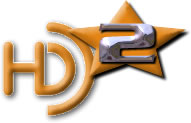 Last month, I was fortunate enough to participate in the "Super Session" at The Conclave. Moderated by Saga’s Steve Goldstein, the panelists included Charlie Cook of Cumulus, Rick Cummings from Emmis, and Tom Bender from Greater Media-Detroit. I was sitting in for Greg Strassell who was unable to make the session.
Last month, I was fortunate enough to participate in the "Super Session" at The Conclave. Moderated by Saga’s Steve Goldstein, the panelists included Charlie Cook of Cumulus, Rick Cummings from Emmis, and Tom Bender from Greater Media-Detroit. I was sitting in for Greg Strassell who was unable to make the session.
The session was very candid, very honest, and even a bit controversial at times as we struggled to address some of the questions and issues that face the radio industry. It became clear there was agreement that we need to focus on content, but content costs money. And this is not a time when radio can invest heavily in its product. Talk about a Catch-22.
But then the discussion turned to HD Radio, and our group questioned why HD2 channels sound so bland and/or too much like satellite radio offerings. And that’s when Tom Bender mentioned the idea of putting young people on these channels – not just to play music, but to talk, and try their hand at doing radio. Yes, it would sound rough, complete with dead air, and awkward moments. But when you think back to the early days of Howard Stern and Steve Dahl, that’s pretty much how they sounded… at the beginning.
It also became clear that a bunch of 50-something guys on a radio panel cannot adequately address the youth problem that permeates terrestrial radio. Frankly, we’re out of the demo, and after 20 years of focusing on 25-54 year-old targets, we’re a little out of practice.
 If radio truly wants to reach young consumers – and we sure need a strategy to accomplish just that – we’re going to have to enlist the support and talent of teens and college-aged media users. They entertain themselves with their iPods, on MySpace, and with videogames. Why not turn them loose on the radio – and see what happens?
If radio truly wants to reach young consumers – and we sure need a strategy to accomplish just that – we’re going to have to enlist the support and talent of teens and college-aged media users. They entertain themselves with their iPods, on MySpace, and with videogames. Why not turn them loose on the radio – and see what happens?
If we’re not going to invest a lot of money into HD2 channels until there are more HD radios in the marketplace – and if consumers aren’t going to buy HD radios until there’s something interesting to listen to on HD2 channels – then why not turn these stations into the "digital sandboxes" they were meant to be? Just as FM radio could play the experimentation game in 1968, so can HD Radio in 2006. That is, if we’re smart enough to remember what "content" is all about. At the end of the day, as they say, what do we have to lose?
- Media And Technology In 2025: Believe It Or Not! - April 18, 2025
- In Radio, You Just Never Know - April 17, 2025
- The Secret To Making A Great Podcast (And Great Radio) - April 16, 2025




HD Radio – radio incubator
Fred Jacobs today, recounts a session he participated in at Conclave this year and talks about an issue Ive addressed in a post title Growth – wheres it coming from. Using HD as a Radio Incubator. I think its a gr…